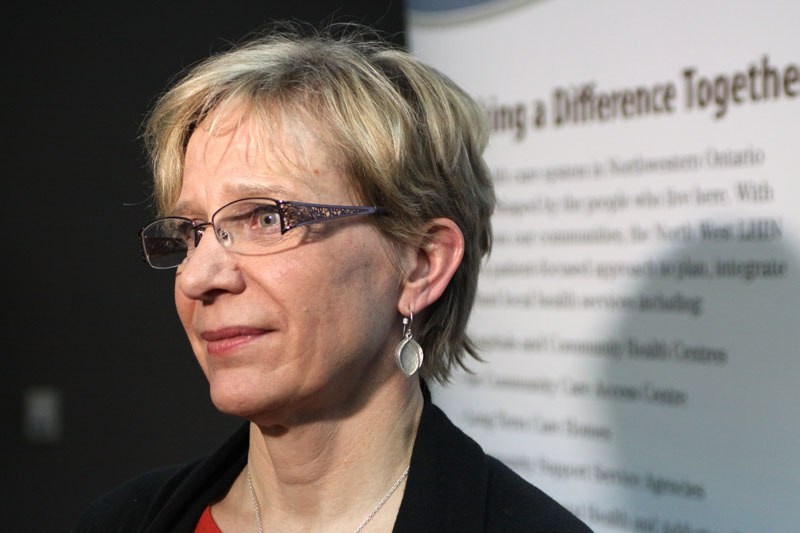The call for more detox beds in Thunder Bay has been answered.
The North West Local Health Integration Network on Thursday announced $988,000 for a two-year pilot project that will increase the number of crisis management beds at the Balmoral Withdrawal Management Centre from seven to 22.
“This is a big announcement,” said Thunder Bay Police Service Chief J.P. Levesque.
“We have 3,000 arrests a year for intoxication. Having addiction issues doesn’t make you a criminal, yet we tend to criminalize people who have been picked up for intoxication,” he said.
If the seven beds at the detox centre were full, police had to bring people to either the emergency room or to spend the night in a jail cell.
In addition to the seven crisis beds, the Balmoral Centre, run by St. Joseph’s Care Group, also had 15 stabilization beds for longer stays. With this funding, they will be able to open all 22 beds for both crisis and stabilization management.
And while the police chief isn’t complaining, he said the city could always use more.
Levesque also said he sees the need for the program going beyond the two-year pilot project.
“The reality is it’s going to have to be in perpetuity. I don’t know what the numbers are going to be. The numbers are going to be significant though. I think they’ll very quickly see the need,” he said.
The Balmoral Centre serves about 1,300 people per year, said Janet Sillman, vice-president of mental health and addiction services for SJCG.
“Over the last number of years, we have had to turn away 1,000 people because our services at Balmoral Centre has been full. The individuals end up going to the emergency department or they go to jail, which are really inappropriate settings for individuals who have substance use issues,” she said.
Now the facility should be able to take in another 800 people a year, resulting in a 20 per cent reduction in emergency room visits.
Thursday’s announcement will also provide 24-hour nursing support at the detox centre as well as expanded home care detox services and telemedicine outreach to the region.
Mayor Keith Hobbs said it was a great day and as a former police officer, he used to see the same people with alcohol and drug issues come in and out of the station.
“In 1997, we brought the issue forward publicly as a police association that alcohol and drug use in Thunder Bay was the highest in Ontario,” he said.
“In 2009, I went on a rant about it again and here we are today and seeing the fruits of some of that lobbying.”
The mayor said by getting people with substance use issues more help, it should help the city’s crime rate.
“When people are desperate then they break into places, they rob stores to get money for drugs and alcohol. These are the root causes we talked about working on. Perhaps we can see some crime rates come down as a result of this,” he said, adding this is just one piece of the puzzle.
MPP Michael Gravelle (Lib., Thunder Bay-Superior North) helped make the announcement at the Thunder Bay LHIN and said the addition of detox beds will help unclog emergency and acute care services.
Treatment at the Balmoral Centre is also the kind of care people deserve, he added.
“It’s important people get treated in a dignified and appropriate manner,” he said. “With this improvement in the services and the increase and expansion of the services, that’s what we’re going to see as well and that’s pretty important.”
